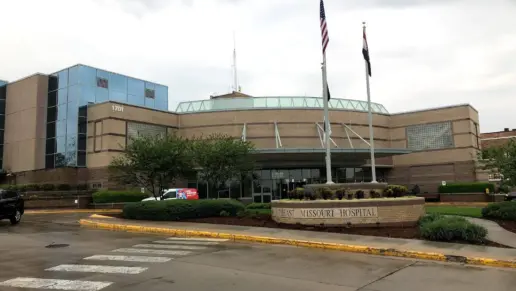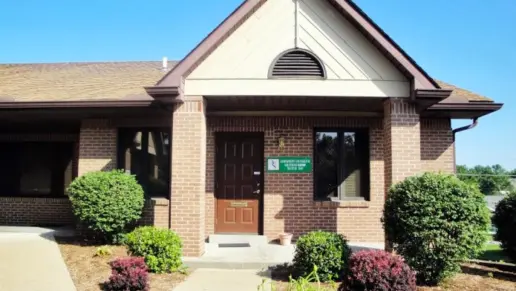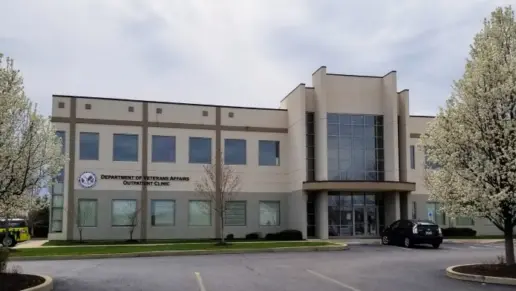I can't say enough good things about Midwest Recovery; I just want to say thank you to all the staff for giving me a better wife than I had 90 days ago! They were excellent with all my family they don't only care about the addicts but also the family who also suffer. When th ...
About Midwest Recovery Centers
Midwest Recovery is a full service alcohol and drug addiction recovery facility in Kansas City, Missouri. Midwest Recovery provides multi-phase treatment plans that meet adult clients where they are in recovery and guide them through a comprehensive, individualized program. This is a private facility with homelike amenities.
Midwest Recovery uses assessments to uncover adjacent behavioral health concerns before a client enters treatment. They provide dual diagnosis care for clients with such a diagnosis
The first step for many seeking treatment is detox. Clients reside at the facility during this process, where they can be monitored and cared for by the medical team, which helps clients cope with withdrawal. Once a client is stable, they can enter the appropriate level of treatment.
The residential program sees clients live at the facility while receiving treatment. The residence is a secure facility monitored around the clock by staff, who assist in meeting clients’ needs. This is a supportive community environment where clients follow a structured schedule.
Treatment is built on therapy and education groups that seek to help clients better understand their addictions, emotions, and triggers while teaching them improved communication and coping skills to support ongoing recovery. Therapy takes place individually and in groups.
During the second residential treatment phase, clients are moved to transitional housing, where they continue to receive outpatient care. Clients begin taking on more responsibility and gain more freedom as they continue to receive treatment and practice coping skills in anticipation of returning to independent living.
The IOP day program has clients visit the treatment facility three nights a week for three hour sessions. It’s sometimes used following inpatient care and lasts for 24 sessions. Clients participate in the same types of therapy and education groups as those offered in inpatient care.
This is a less intensive version of IOP for those who have shown improvement in coping skills and substance use avoidance. It uses the same model of therapy and education groups but meets less frequently than IOP, two and a half hours a night for two nights a week.
Rehab Score
Gallery
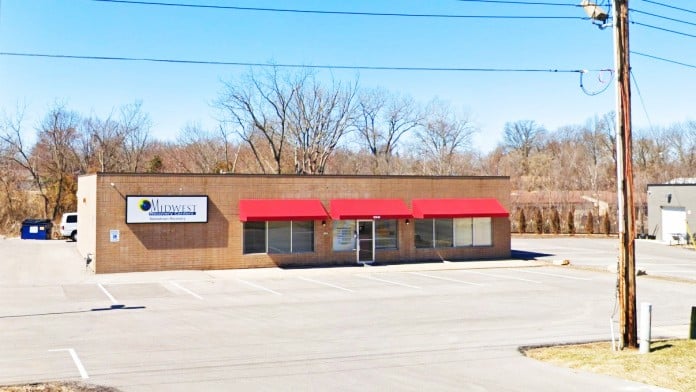
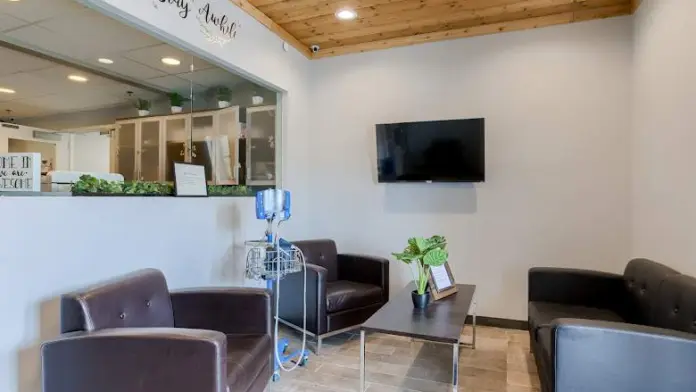
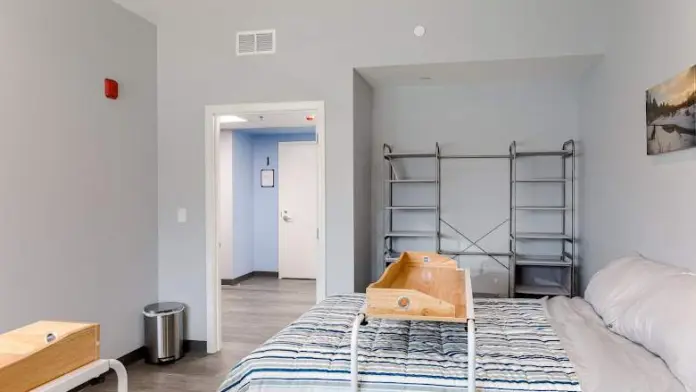
Location
Other Forms of Payment
Private insurance refers to any kind of healthcare coverage that isn't from the state or federal government. This includes individual and family plans offered by an employer or purchased from the Insurance Marketplace. Every plan will have different requirements and out of pocket costs so be sure to get the full details before you start treatment.
Self-pay involves paying for treatment out of your own pocket. You can use savings or credit, get a personal loan, or receive help from family and friends to fund your treatment. If you don't have insurance or your insurance plan doesn't cover a specific program, self-pay can help ensure you still get the care you need.
Addiction Treatments
Levels of Care
Treatments
The goal of treatment for alcoholism is abstinence. Those with poor social support, poor motivation, or psychiatric disorders tend to relapse within a few years of treatment. For these people, success is measured by longer periods of abstinence, reduced use of alcohol, better health, and improved social functioning. Recovery and Maintenance are usually based on 12 step programs and AA meetings.
Drug rehab in Missouri usually involves several phases: detox, rehab, and aftercare. The rehab phase may include a combination of inpatient and outpatient treatments, as the individual moves through a continuum of care on their recovery journey.
Many of those suffering from addiction also suffer from mental or emotional illnesses like schizophrenia, bipolar disorder, depression, or anxiety disorders. Rehab and other substance abuse facilities treating those with a dual diagnosis or co-occurring disorder administer psychiatric treatment to address the person's mental health issue in addition to drug and alcohol rehabilitation.
Opioid rehabs specialize in supporting those recovering from opioid addiction. They treat those suffering from addiction to illegal opioids like heroin, as well as prescription drugs like oxycodone. These centers typically combine both physical as well as mental and emotional support to help stop addiction. Physical support often includes medical detox and subsequent medical support (including medication), and mental support includes in-depth therapy to address the underlying causes of addiction.
Substance rehabs focus on helping individuals recover from substance abuse, including alcohol and drug addiction (both illegal and prescription drugs). They often include the opportunity to engage in both individual as well as group therapy.
Programs


Clinical Services
Cognitive Behavioral Therapy (CBT) is a therapy modality that focuses on the relationship between one's thoughts, feelings, and behaviors. It is used to establish and allow for healthy responses to thoughts and feelings (instead of unhealthy responses, like using drugs or alcohol). CBT has been proven effective for recovering addicts of all kinds, and is used to strengthen a patient's own self-awareness and ability to self-regulate. CBT allows individuals to monitor their own emotional state, become more adept at communicating with others, and manage stress without needing to engage in substance abuse.
A complete course of dialectical behavior therapy typically takes six months. Skills training happens in a group setting. You'll also attend weekly individual treatment sessions to receive coaching from a therapist. You'll work on understanding and accepting your feelings and learn how to manage them to make positive changes.
The goal of group therapy is to assist each client in identifying and understanding their own pathology in regard to their substance dependence. They strive to interrupt the self-destructive patterns of alcohol and drug use. Their talented staff have developed curriculum that promote the development of relapse prevention skills, communication skills, introspection, harm reduction and resolution, and establishing healthy boundaries. Group therapies range from emotional process groups, to cognitive behavioral therapies and psycho-educational groups. These lessons may be delivered in lecture form, group discussion, artistic expression, video, or written assignments.
During the admission process, each individual is assigned a personal therapist that will conduct individual therapy. They understand that some difficulties take time to resolve, and a group setting is not always the best avenue to find solutions. Individual therapy provides the opportunity to work on specific issues, have ongoing assessment and diagnosis, and to provide appropriate referrals. They have a large team of trained professionals in the community who may work in conjunction with the staff at Midwest to provide a complete clinical experience.
Experiential therapy is a form of therapy in which clients are encouraged to surface and work through subconscious issues by engaging in real-time experiences. Experiential therapy departs from traditional talk therapy by involving the body, and having clients engage in activities, movements, and physical and emotional expression. This can involve role-play or using props (which can include other people). Experiential therapy can help people process trauma, memories, and emotion quickly, deeply, and in a lasting fashion, leading to substantial and impactful healing.
Amenities
-
Private Setting
Accreditations

LegitScript has reviewed Midwest Recovery Centers as part of their certification program, and has determined that it meets the LegitScript standards for legality, safety and transparency.
LegitScript verified in

The Joint Commission, formerly known as JCAHO, is a nonprofit organization that accredits rehab organizations and programs. Founded in 1951, the Joint Commision's mission is to improve the quality of patient care and demonstrating the quality of patient care.
Joint Commission Accreditation: Yes
Contact Information
13340 Holmes Road
Kansas City MO, 64145
